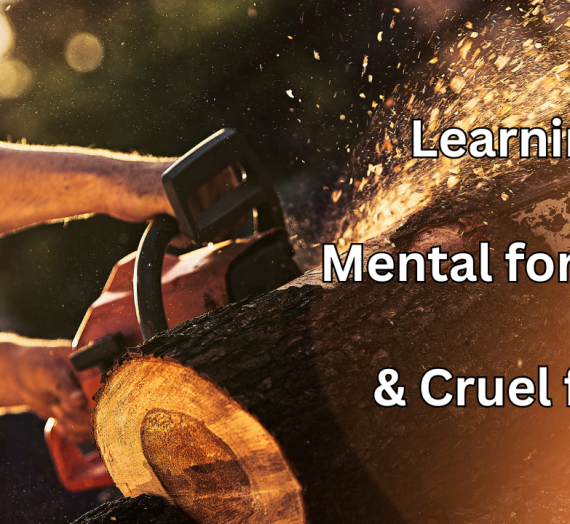How can famines affect your character’s lives? What causes famines? Who are the most vulnerable to famines? Find out on this episode.
Famine is defined as extreme food scarcity. However, for it to be declared a famine, there are some criteria that need to be met. 20% of homes must suffer from extreme lack of food, and malnutrition must be 30% or more. That means that people are underweight because they do not have the amount of food they need just for daily sustainability. Sadly by the time a famine is declared, two out of every 10,000 adults are dying of starvation every day, or four out of every 10,000 children are dying of starvation daily.
Weirdly, at least weird to me, the United Nations defines hunger as not having enough food to consume to maintain a healthy weight and daily activities for at least one year. I didn’t realize it needed to last for a whole year to be considered hunger.
Famines can be caused by short or too wet or dry growing seasons that lead to small food storage for the winter, war, plagues that leave the gardens and crops uncared for or even unplanted, droughts, too hot or too cold growing seasons, the price of food skyrockets making it impossible for many families to buy food, government policies and more. Most cases of famine are caused by a mix of things.
Remember, when people are starving, they become desperate. And desperate people can become dangerous people. I’m not saying everyone will be, only that many people do. Another thing to remember is, in history, many times, governments or rulers would use food as a way to control people. Obey, and you can eat; otherwise, you will starve to death. Watching people suffer when someone could have saved them, especially if it was a child, will make your reader hate the person causing the suffering.
Those who are the most vulnerable to famine are children, pregnant or nursing women. Children are far more likely to suffer diseases in a famine, including diarrhea, dysentery, cholera, malaria, and pneumonia. Children under five are at extreme risk of acute malnourishment, and if they survive, it can have long terms affects. These could be mental delays or impairment, stunted growth, and physical delays or impairment.
Malnutrition is when a person’s food intake is less than the essential amount they need to sustain life for an extended period of time. There are two main signs your character likely has malnutrition or a serious health issue, but your character will know they are still hungry and that malnutrition is the most likely cause.
The first sign is that your character loses 5-10% of their body weight within 3 to 6 months. This could be calculated with a scale. If there is no scale, other signs could be jewelry, clothing, and belts becoming losers over this time. The second is that their BMI (Body mass index) is under 18.5%. The BMI is a tool used to calculate the total body fat of a person based on weight and height. Everyone will have some body fat, as fat is what protects our organs, but too little fat is dangerous and potentially caused by malnutrition.
Some of the signs and symptoms of malnutrition are
* Lack of interest in food or drink
* Reduced appetite
* Feeling tired all the time
* Irritability
* Inability to concentrate
* Always feeling cold
* Getting sick often
* Taking longer to heal from wounds or illness
* Poor circulation
* Loss of body fat, muscles, or body tissues
* Depression
* Low mood
* Sadness
Symptoms in children include
* Not growing at the expected normal healthy rate
* Changes in behavior such as slowness, moodiness, irritability, or sadness
* Tires often
* Low energy levels
* Anxiety
Famine can make people face hard choices. They can sometimes marry children off when they are younger for food or money. Sometimes they take children out of school to help work, especially in farming types of positions. Many mothers skip meals to feed their children and might not eat but every other day. Some families even decide that the primary breadwinner gets to eat first. The reason is if they stop working, no one will be eating because they can’t afford food. If you are writing historical or post-apocalyptic, the breadwinner could be the person maintaining a small garden, a hunter, or someone who is trading with others to get food.
There are things that help in a famine. Clean water and proper sanitation help to prevent diseases that people suffering from malnutrition are more susceptible to. In modern times charities like Samaritan’s Purse and Feed the Children help to assist in situations where food is needed by trucking in food to distribute. I say trucking, but it could come by boat or helicopter. It doesn’t matter how, as long as it goes to the people who need it.
Sometimes seeds for crops are needed so the people can grow their own food. My grandparents used to save the seeds for at least two years’ worth of food in case one year was a bad crop year. However, if that happened for long periods of time, or people fled their homes because of war, they might not have the seeds to plant.
Fun fact: There are many agencies that help those suffering from famine all over the world today. Not only are they trying to help those suffering in famines, but many have made it their mission to end hunger altogether.
What could possibly go wrong?
Likely to go wrong: Sadly, your character starved to death.
Likely to go wrong: Your character or your character’s child has stunted growth from malnutrition, and it affects them for the rest of their life.
Likely to go wrong: When your character finds out there will be a food shortage, they start hoarding food. On the flip side, other characters could start hoarding the food, and your character can’t find enough food. Either way, this will only make food shortages worse. We all remember the toilet paper shortages and the gas hoarders of 2020.
Possible to go wrong: Your character could find themselves in a situation where the government or ruling authority demands their food and other goods.
Possible to go wrong: Your character could find themselves in a situation where there is food, but the price is so high they cannot afford to buy it.
Unlikely to go wrong: Your character finds themselves in a desperate situation and sells a teenage child off to be married so they can feed the younger children. Or maybe your character is the teenager that was sold off.
Unlikely to go wrong: Your character or their children are starving and soon are desperate to eat. They bend their own morals and turn to prostitution to keep from starving.
Improbable but technically still in the realm of possibilities: Your character could turn to stealing food, or gambling in an attempt to get more food.
Improbable but technically still in the realm of possibilities: Your characters find themselves in desperate times. They or other characters could turn to cannibalism to stay alive.
Helpful links to learn more:
Famine basics:
https://www.mercycorps.org/blog/facts-famine
https://www.wfp.org/fight-famine
https://www.oxfamamerica.org/explore/stories/what-is-famine-and-how-can-we-stop-it
https://www.rescue.org/article/what-famine-how-its-caused-and-how-stop-it
Malnutrition:
https://www.nhs.uk/conditions/malnutrition/symptoms/
https://www.medicalnewstoday.com/articles/179316#what-is-malnutrition




